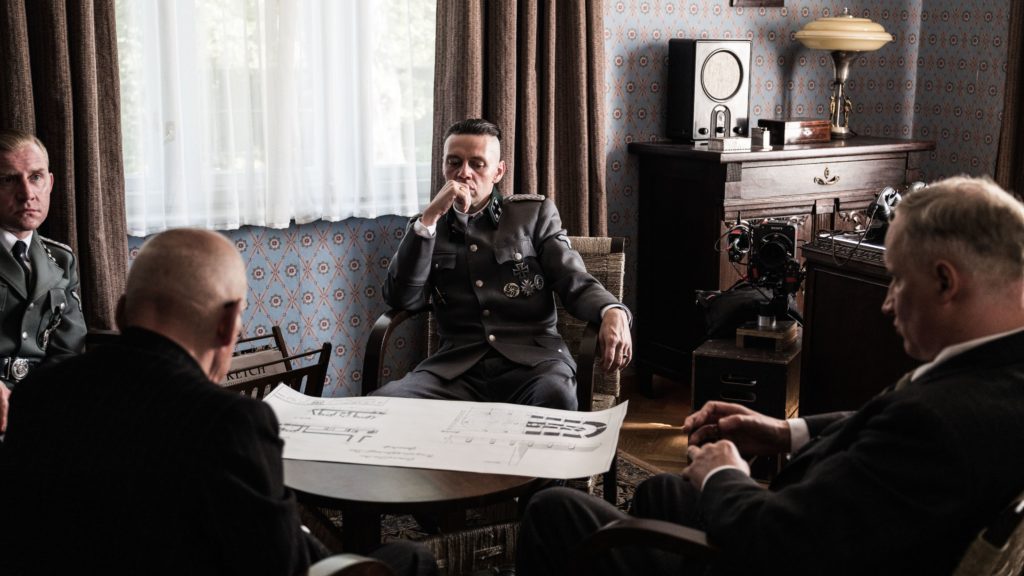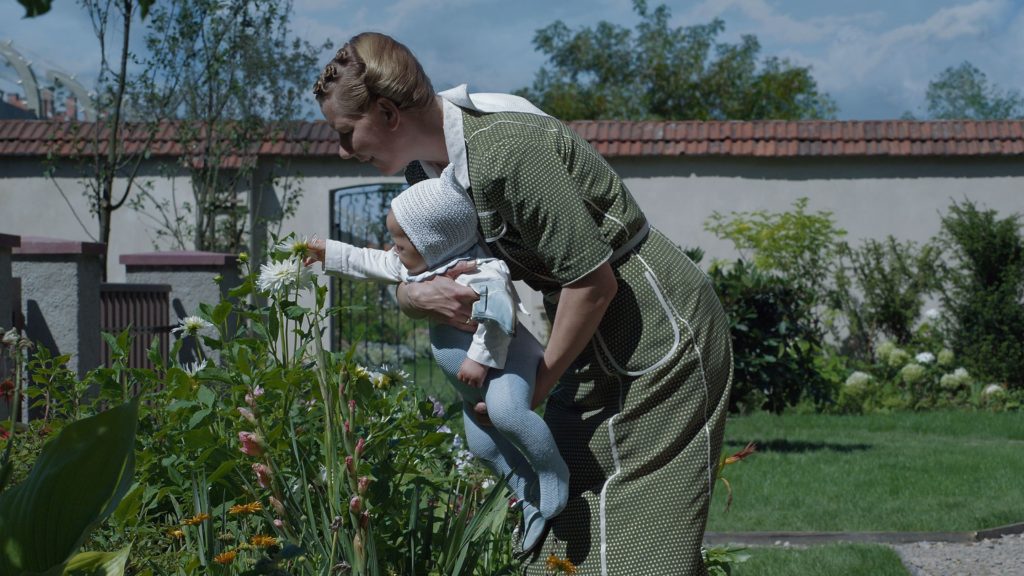The banality of the banality of evil
The Zone of Interest, the latest by Jonathan Glazer, is one of the grand cinematic achievements of 2023 — and, like his last film, nearly as frustrating to watch as it is great. It earned Glazer his first Best Picture nomination and seems the year’s film best poised to ascend the ranks of the They Shoot Pictures Don’t They? uber-ranking in the coming years. The film is set on the fringes of Auschwitz during World War II, but only on the fringes: other than a few night-vision interludes, we see nothing of the gas chambers and concentration camp, though we hear plenty of it. The film follows a few ordinary (and therefore monstrously cruel) days in the lives of the family of the real historical Nazi officer Rudolf Hoss (Christian Friedel), including his wife Hedwig (Sandra Hüller), as the pair shut out the atrocities occurring just beyond the walls of their luxurious home.
Glazer’s signature dark humor, a key feature of all his previous works, takes on an even more sinister tone in The Zone of Interest. The juxtaposition of the prim and proper Germans going about their daily lives — trying on fur coats stolen from prisoners and strolling through immaculately maintained gardens — against muffled screams and barbed wire creates a bleak and deeply unsettling irony. The film so effectively interrogates the concept of “the banality of evil” that the phrase itself has become a crutch for trying to describe the gut-slicing feeling this film conveys of people treating monstrous violence as normal and justifiable daily business.

The sound design is undeniably the film’s crowning achievement, and frankly one of the great accomplishments in cinema of 2023. The nearly mono, all-encompassing fog of horror that envelops the audience — gunshots, screams, barking dogs, incinerators — recalls nothing less than the sanity-cracking terror of All Quiet on the Western Front, when Hollywood powered on Pandora’s speaker for the first time. Mica Levi’s spare, unsettling score complements the sound design, further amplifying the film’s oppressive atmosphere.
Glazer’s direction is spot-on for his objective, his insistence on capturing the Hosses’ day-to-day life with unobtrusive naturalism deeply immersive and unsettling. There are only a few instances where the film’s themes become a bit too heavy-handed and on the nose. For example: Hedwig’s mother, arriving for a visit, complains about the slight discomfort of her train ride while the sounds of steam engines and gas chambers echo in the distance.

So is it a masterpiece? As an achievement of using the medium in new and skin-crawling ways, all while never alienating its audience the way that experimental cinema so often does, hell-to-the-yes it’s a masterpiece. And yet, it’s a clinical and museum-quality film: You watch it to say that you watched it, to “get it,” to discuss it afterward and point out just how important and timely its message is despite being set 80 years ago. (Ceasefire now.) I appreciate it, I respect it, but that’s not really why I go to the movies. It might be the “best” from an academic perspective, but it is not my “favorite” movie of 2023, not one I will excitedly watch again and pass on to my children. Glazer is so deep in “art film” territory at this point that his movies have become less rewarding to watch… even as his craft grows stronger and stronger, his ideas sharper and sharper, and his black sense of humor more cruel. Sexy Beast was in love with the possibility of cinema, and even if it was a bit unpolished, it rubbed off — The Zone of Interest reveals Glazer as a pro using his tools with razor precision but little thrill.
The film’s premise — “gimmick” if you are feeling uncharitable — offers a unique and gut-wrenching impact that grows numbing across a hundred minutes (again, this is part of the point: cruelty becomes normal with repetition). But it ends with a thought-provoking “twist” of sorts that heaves its message back to modern reality. It’s a provocative reminder of the dangers of historical atrocities fading into sterile, forgotten dust — that “the banality of evil” is a commodity that shifts to routine capitalism and daily business as time marches on.
- Review Series: Jonathan Glazer
Is It Good?
Very Good (6/8)
Dan is the founder and head critic of The Goods. Follow Dan on Letterboxd. Join the Discord for updates and discussion.

